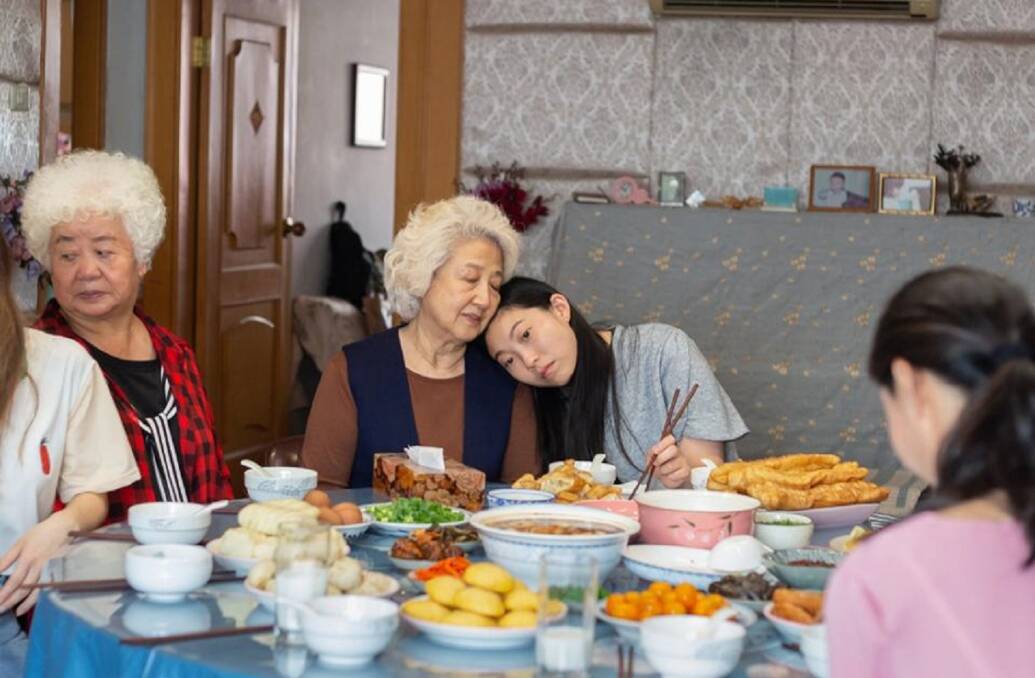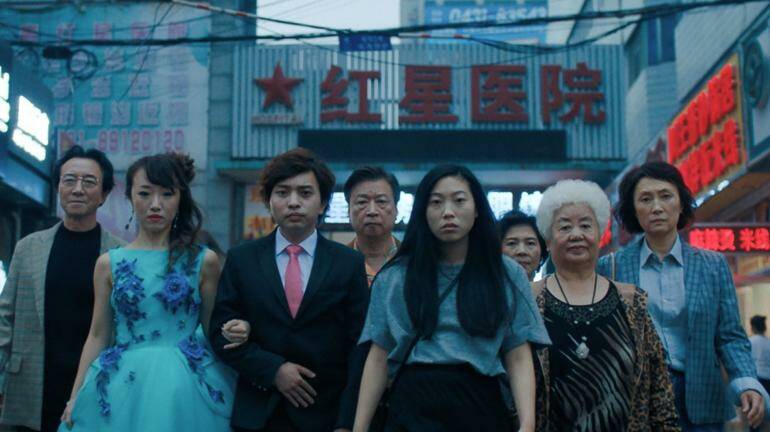I've seen many films that are based on a true story. Finally, I've watched a film that's based on a real lie.
Subscribe now for unlimited access.
$0/
(min cost $0)
or signup to continue reading
Billi (Awkafina), a Chinese woman living in New York, discovers that her beloved grandmother Nai Nai has been diagnosed with lung cancer. Nai Nai's immediate family decide they won't tell her that she is terminally ill.
This may sound ridiculous but the family believes that rather than having Nai Nai suffer the burden of her impending death, it is their duty to suffer on her behalf.
And there you have the lie. It's true because it's based on the film director Lulu Wang's own experience.

The added complication is that Nai Nai's family is spread across several countries and continents. Nai Nai and her sister live in her hometown Changchun, China.
One son, Haiyun, who is Billi's father, lives in New York; another son and his family live in Japan. They haven't been back to China for decades.
How do they all suddenly appear on Nai Nai's doorstep without her becoming suspicious about the reason for their visits?
The obvious solution is to pretend they are visiting for the wedding of Nai Nai's grandson, Hao Hao.

It seems inconceivable that a person with a terminal illness is unaware they are seriously ill.
If all that sounds complicated and a tad beyond believable, you just may be correct. But the low key and gentle manner in which the scriptwriter and director tackle the situation makes it palatable. You are willing to accept the premise even though it sounds far-fetched.
And remember, it is based on a true lie.
There are observations underpinning the film about cultural differences between the family in China and the children who have moved to and raised their children in other countries.
Billi's father considers himself an American, although he quickly adds that he will always be Chinese.
Nai Nai's ill health in old age is a platform from which to view her past as a revolutionary soldier, while Billi shows the contemporary view of America as a land of prosperity for Billi's generation.
Nai Nai provides calm among all the distraught relatives. She holds true to her values and beliefs no matter how quaint they may seem.
The distance between Billi and her Nai Nai extends beyond the kilometres that separate them to the cultural divide that separates American Billi from her Chinese cultural heritage.
She is torn between her desire to live independently in American society while desperately wanting to reclaim her Chinese heritage.
You may prepare yourself for a sad and downbeat ending but you will walk out of the cinema wearing a smile. It's that kind of film.

